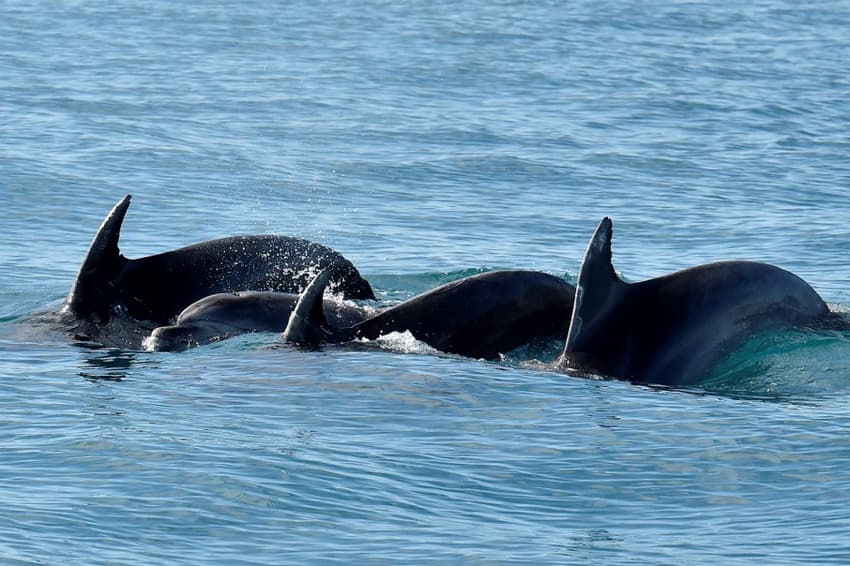France reports record number of washed-up dolphins

At least 910 dolphins have washed up on France's Atlantic coast since the start of the winter, with most deaths believed to have been caused by fishing activities, the Pelagis ocean observatory reported on Friday.
Over the past week alone, more than 400 of the marine mammals were found stranded along the coast, an "unprecedented" number, the Pelagis oceanographic observatory based in the western city of La Rochelle said in a report.
The figures were still provisional, it added.
Early examinations of the dolphins showed that some of them had been dead for days, and others for several weeks.
Most of them showed injuries consistent with being caught in fishing nets, other fishing equipment or boat engines.
Between 2017 and 2020, the average number of washed-up dolphins during the winter was 850.
Most of them died in February and March, when dolphins usually move closer to the coast looking for food and are more likely to come in contact with fishing operations.
READ ALSO: France under pressure to save dolphins from trawlers
Some NGOs and scientists have called for a temporary halt of fishing in those months, but the government has instead opted for solutions mitigating the impact of industrial fishing on dolphins, such as onboard cameras or repellents to keep them away.
In February, the commissioner of the State Council, France's highest jurisdiction in government matters, came out in favour of a temporary ban in some locations on certain types of fishing deemed to be responsible for many of the dolphin deaths.
A formal decision by the Council is expected soon, after several environmental protection associations brought a legal complaint against the government.
Comments
See Also
Over the past week alone, more than 400 of the marine mammals were found stranded along the coast, an "unprecedented" number, the Pelagis oceanographic observatory based in the western city of La Rochelle said in a report.
The figures were still provisional, it added.
Early examinations of the dolphins showed that some of them had been dead for days, and others for several weeks.
Most of them showed injuries consistent with being caught in fishing nets, other fishing equipment or boat engines.
Between 2017 and 2020, the average number of washed-up dolphins during the winter was 850.
Most of them died in February and March, when dolphins usually move closer to the coast looking for food and are more likely to come in contact with fishing operations.
READ ALSO: France under pressure to save dolphins from trawlers
Some NGOs and scientists have called for a temporary halt of fishing in those months, but the government has instead opted for solutions mitigating the impact of industrial fishing on dolphins, such as onboard cameras or repellents to keep them away.
In February, the commissioner of the State Council, France's highest jurisdiction in government matters, came out in favour of a temporary ban in some locations on certain types of fishing deemed to be responsible for many of the dolphin deaths.
A formal decision by the Council is expected soon, after several environmental protection associations brought a legal complaint against the government.
Join the conversation in our comments section below. Share your own views and experience and if you have a question or suggestion for our journalists then email us at [email protected].
Please keep comments civil, constructive and on topic – and make sure to read our terms of use before getting involved.
Please log in here to leave a comment.